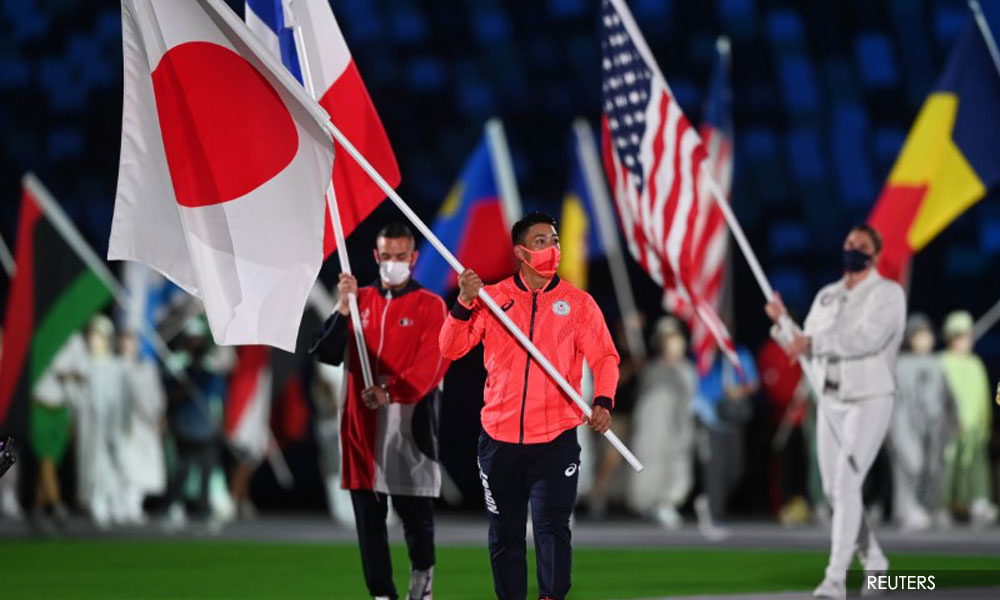Where finishing well is as good as winning
The Covid-restricted Tokyo 2020 Olympic Games have come and gone without much media blitz. Worldwide viewership of its opening and closing ceremonies fell by about 40 percent from the 2016 Rio de Janeiro Games, according to Comcast data analysis.
With every Olympics, though, I recollect the live telecast of Eric Moussambani flailing through his final lap in his solo 100m freestyle heat at the 2000 Sydney Olympics.
The Equatorial Guinean swimmer, 22 years old then, still holds the slowest record (1 minute 52.72 seconds) in the 100m freestyle - 30 seconds slower than Arnold Gutmann of Hungary at the Athens Olympics in 1896.
Nicknamed ‘Eric the Eel’ by sports journalists, Moussambani entered the Olympics as a wildcard introduced by the International Olympic Committee (IOC) to encourage participation by developing countries lacking in professional training facilities.
Moussambani reportedly mastered his strokes at a hotel swimming pool, and a nearby snake-infested lake, only months before the Sydney Olympics.
This unlikely-to-win competitor of grit, an athlete who persists despite the physical pain and mental fog, gives the Olympics a deeper meaning, a meaning far from the glorious grabs for gold.
The defining moments of a heroic loss mark the rare Olympian where finishing the race is as personally rewarding as winning a medal. Indeed, a lesson in life. Scriptural even – “I have fought the good fight, I have finished the race, I have kept the faith.”
I recall watching on screen the dehydrated 39-year-old Swiss marathon runner, Gabriela Andersen-Schiess, at the Los Angeles 1984 Olympics stumbling into the stadium in the summer heat.
Or the Tanzanian runner, John Stephen Akhwari, grimacing from a fractured knee to finish his marathon hours later at the 1968 Mexico City Olympics.
The Tokyo 2020 Olympics had Patrick Tiernan, an Australian in the 10,000m event, who collapsed at 50m from the finishing line. An Australian sports commentator hollered: “You can see Pat, he is absolutely done and dusted. He is running on heart only here. Running on heart only.”
The developed nations, unsurprisingly, continue to dominate at each Summer Olympics. Except for the marathon where athletes train with a pair of good running shoes, undulating dirt tracks, tolerance for pain and a lot of “heart”, most Olympic events are generally skewed towards popular and privileged sports in the West - equestrian, swimming (the comically synchronised included), fencing, sailing, tennis, golf, shooting, archery and canoeing slalom.

Our national game sepak takraw is still bidding for recognition as a worthy Olympic event, even as handball was featured, and dominated by European players, since its debut at the Munich Games in 1972. Badminton was only introduced in 1992 at the Barcelona Games.
Unsurprisingly, the odds are still stacked against athletes from poorer countries. The US and Australia reportedly spend more money on one elite athlete than Equatorial Guinea, Laos or East Timor could afford for their entire team.
When the priorities of the poor are to find food, shelter and security for the family, which usually include extended members, the Olympic pitch of "faster, higher, stronger" for athletes from developing countries is unreal, if not unachievable.
Hence, the wildcard draw that enables athletes like Eric the Eel to participate and, possibly, achieve world acclaim in a fortuitous triumph over adversity.
The uneven playing field undermines the Olympic spirit of fair competition and the ‘celebration of humanity’, which has become more clichéd than real.
As wealthy nations prepare their professional athletes to go for gold-or-nothing at the next Olympics in Paris, France, the poor countries will enter their athletes against all odds to start and finish the race.
Notwithstanding its excessive commercialism, the Olympics does provide a world stage where athletes from the poor nations have a go at realising their potential, and if lucky enough, to lap up a few product endorsements.
Hopefully, the next Covid-free Olympics in Paris will draw world attention to the broader issue of commercialism in sports and the commodification of elite athletes.
Failing which, the Olympics, the motherlode of corporate sponsorship and product endorsements, will just be a carnival of physical exhibitionism - and drug masking - where the amateur and professional athletes ply their prowess, where winning gold is the ticket to a life of financial security and adulation.
That’s dancing to a different drumbeat, far from what the founder of the modern Olympic Games, Pierre de Coubertin, declared in the 1930s that “the important thing in life is not the triumph but the struggle, the essential thing is not to have conquered but to have fought well.”
ERIC LOO is the founding editor of the academic journal Asia Pacific Media Educator.
The views expressed here are those of the author/contributor and do not necessarily represent the views of MMKtT.
✍ Credit given to the original owner of this post : ☕ Malaysians Must Know the TRUTH
🌐 Hit This Link To Find Out More On Their Articles...🏄🏻♀️ Enjoy Surfing!




















Post a Comment